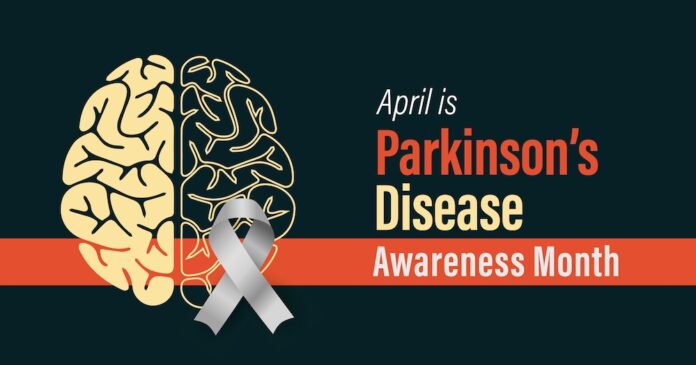April serves as a beacon of hope and a call to action for the approximately one million Americans currently living with Parkinson’s disease, as well as their caregivers, healthcare providers, and advocates. Parkinson’s Awareness Month aims not only to raise awareness about this neurodegenerative disorder but also to foster support and propel research efforts toward finding a cure.
What is Parkinson’s Disease?
Parkinson’s disease is a progressive neurological disorder characterized by the degeneration of nerve cells in the brain that produce dopamine. This leads to hallmark symptoms such as tremors, rigidity, and bradykinesia (slowness of movement). The disease can also manifest through a wide array of non-motor symptoms, including mood disorders, sleep disruptions, and cognitive challenges.
Impact of Parkinson’s Disease
The impact of Parkinson’s disease extends far beyond its physical symptoms. Nearly one million Americans live with Parkinson’s, and this number is expected to rise to 1.2 million by 2030, according to the Parkinson’s Foundation. The emotional, social, and economic toll on patients and their families is significant, highlighting the urgent need for comprehensive support services and ongoing research for better treatments and a cure.
Resources for Information and Help
- Parkinson’s Foundation: Provides extensive information on Parkinson’s, the latest research findings, and resources for patients and caregivers.
- Michael J. Fox Foundation: A leading organization focused on Parkinson’s research, offering resources for those affected by the disease and opportunities to support research efforts.
- American Parkinson Disease Association (APDA): Provides resources and information on education, support and research funding.
Local Support Groups: Finding a local support group for Parkinson’s disease can be an essential support services, offering both practical advice and emotional support. Here are several strategies to help someone find local support groups:
- Contact National Organizations: Start with national Parkinson’s disease organizations such as the Parkinson’s Foundation, the Michael J. Fox Foundation, or the American Parkinson Disease Association. These organizations often have directories or can direct you to local support groups and resources.
- Use Online Resources: Websites and online platforms can be valuable resources. For instance, the Parkinson’s Foundation has a searchable map of local resources, including support groups. Similarly, the Michael J. Fox Foundation’s website offers tools to find support groups and educational events.
- Consult Healthcare Providers: Neurologists, movement disorder specialists, and healthcare teams experienced in treating Parkinson’s disease may have information about local support groups. They can recommend groups that their other patients have found helpful.
- Explore Local Community Centers: Community centers, hospitals, and clinics often host or know of local support group meetings. These can sometimes be found by visiting their websites or calling their offices directly.
- Check Social Media and Forums: Social media platforms and forums dedicated to Parkinson’s disease can provide leads on local support groups. Facebook groups, Reddit communities, and platforms like PatientsLikeMe can connect you with others who might know of local resources.
- Use Library and Bulletin Boards: Local libraries and community bulletin boards can occasionally have information about support group meetings. It’s worth checking these places, as community events are often advertised in such locations.
- Contact Local Universities and Medical Schools: Some universities and medical schools with neurology departments may conduct support groups or can direct you to local resources.
- Network with Others: If you know other individuals with Parkinson’s disease, ask them about the support groups they attend. Personal recommendations can be incredibly helpful.
Remember, while finding the right support group can take time, it’s worth the effort for the camaraderie and understanding these groups provide. If attending in-person meetings is challenging, consider looking for virtual support groups, which can also offer significant support and information.

Get Involved
With over 60,000 Americans diagnosed with Parkinson’s disease each year, the importance of Parkinson’s Awareness Month has never been more evident. The month encourages participation in awareness activities, support for research funding, and advocacy for policy change to improve the lives of those affected by Parkinson’s.
Parkinson’s Awareness Month plays a crucial role in spotlighting the challenges faced by those living with Parkinson’s disease and the ongoing efforts toward better treatments and a cure. By engaging in educational efforts, supporting research, and providing support, we can all contribute to a brighter future for individuals affected by Parkinson’s disease.
Seize the opportunity to educate yourself and others about Parkinson’s disease, advocate for those affected, and support vital research and support initiatives. Your involvement can make a meaningful difference in the lives of nearly one million Americans living with Parkinson’s and pave the way for groundbreaking advances in treatment and care.
Share your thoughts with AmeriDisability on Facebook, Twitter and Instagram.
Check out the Resources page. Claim or add your disability-focused business or nonprofit for free.






